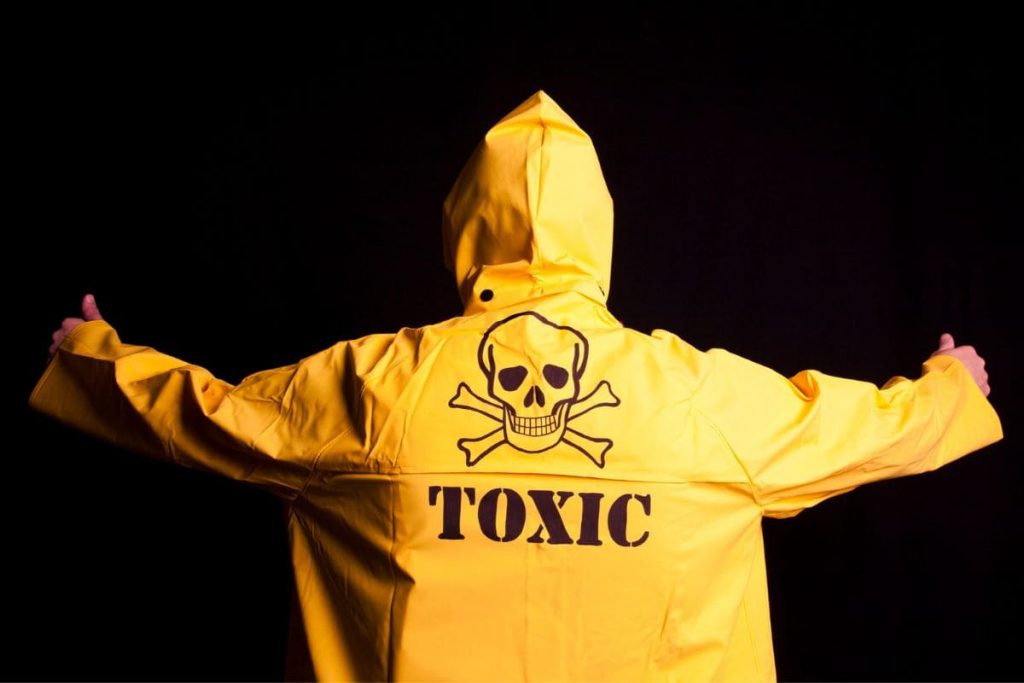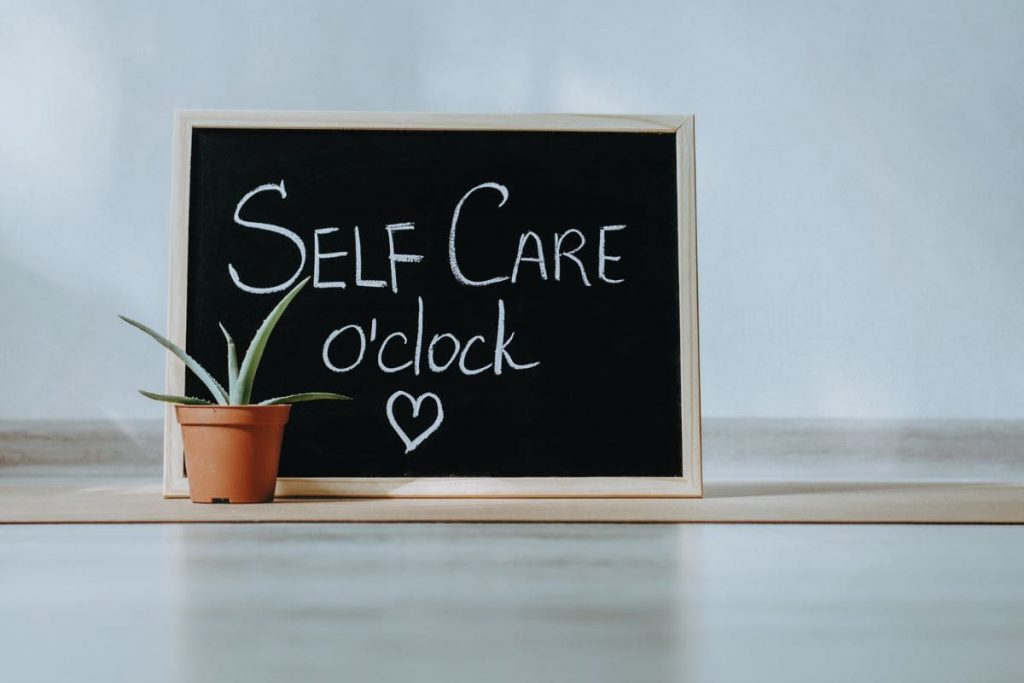Have you ever been in a situation that felt so much toxic energy, it was hard to stay?
You feel like something is wrong and know deep down that it’s time to leave. But then those little voices of doubt creep in: “Am I being too sensitive? Maybe this world isn’t as bad as I think…”
It can be tough to make the call on whether or not you should cut ties with someone or something. And even if you do decide to walk away, there’s still an internal struggle over whether you’ve made the right decision.
Listen up – you’re not ‘too sensitive’ for leaving a toxic situation! It takes courage and strength to recognize when your values are being compromised and act accordingly.
In this article, we’ll explore why leaving a toxic environment is important and explain how doing so sets yourself up for positive growth moving forward.
So don’t worry about what friends and others may say — by reading ahead, you’re taking steps towards living authentically and value-aligned life!
What Is A Toxic Situation?

A toxic situation can take many forms, from a toxic relationship to a toxic, family member, or environment. No matter how it appears, the effects of this kind of toxicity can be emotionally draining and damaging if left unchecked.
Take my friend Mary’s story for example. She was in a long-term relationship with someone who constantly put her down and belittled her every move. Despite all the red flags, she stayed because she felt like leaving would mean admitting failure.
Eventually, the emotional toll became too much for her to bear and she took the brave step of ending things. Mary’s experience is just one type of toxic situation that we may find ourselves in.
Unfortunately, there are so many more examples out there. Whether it’s being around people who consistently criticize us or feeling unsafe in our own homes due to violence or other serious physical abuse or verbal abuse.
In these cases, recognizing when enough is enough and making the decision to leave is far from easy but ultimately essential for preserving our mental health and well-being.
Why Is It So Hard To Let Go Of A Toxic Relationship?

When we’re in a toxic relationship, it can be incredibly difficult to let go – even if we know logically that it’s the right thing to do.
It often feels like there’s an invisible force keeping us tethered to our emotions and our situation and it takes courage and strength of character to finally break free. So why does this happen?
For starters, leaving a toxic relationship is rarely easy because of the emotional investment involved.
We may have developed feelings for our partner or feel guilty about giving up on something that once made us happy.
As such, letting go of these ties can be extremely hard, both mentally and emotionally as we navigate through the process of ending things cleanly.
Moreover, leaving a toxic relationship also means facing the unknown, whether that’s living without someone who has been part of our lives for years or having to start fresh with new people again after being hurt by another toxic person before.
This uncertainty can be very frightening and make breaking away from toxicity seem overwhelming at first glance.
Yet ultimately, taking control of our lives and making decisions based on what is best for us will always lead us back toward self-love, healing, and growth. No matter how challenging it might appear along the journey.
Do Toxic People Know They’re Toxic?

Toxic people are often blind to their own toxicity. It’s like a fog that clouds their judgment and keeps them from recognizing the hurtful things they do or say, even though it may be obvious to everyone else around them.
To put it simply, these types of individuals lack self-awareness when it comes to how their toxic behavior affects those closest to them, or even strangers for that matter.
The truth is, many toxic people don’t understand why someone would want to end a relationship with them, because in their mind they have done nothing wrong.
Rather than take responsibility for any damage caused by their negative attitude or destructive words and actions, they will shift blame onto others instead.
This kind of defensive thinking only serves to exist as an obstacle on the path toward true understanding and healing.
Toxic Families – A Special Kind Of Toxic

Toxic families are a unique and complicated beast. They often appear normal on the surface.
But underneath lies an unhealthy dynamic consisting of manipulation, criticism, blame-shifting and emotional and verbal abuse.
This kind of family toxicity can have lasting effects for those who grow up in it, from low self-esteem to depression or even anxiety disorders.
The key to dealing with toxic family relationships is learning how to set boundaries that protect healthy relationships and your own physical and mental well-being.
It’s essential to recognize when you’re being manipulated or emotionally abused so that you don’t get sucked back into old patterns of behavior that lead nowhere good.
Taking care of yourself first means not engaging in arguments or getting dragged into uncomfortable conversations. Instead, focus on creating healthy distance by setting limits around what topics you discuss and how much time spent together is acceptable.
No matter the person or situation, it’s important to remember that no one deserves to be treated poorly within their own family unit.
You have the right to stand up for yourself and say “no more” when it comes to negative interactions with your relatives.
Recognizing Your Worth

It’s easy to forget just how incredible and valuable you are when toxic family dynamics have become the norm.
It can be hard to recognize your own worth in a situation where it seems like any opinion or feeling of yours is invalidated, overlooked, or ignored entirely.
The first step in reclaiming your self-worth is learning to validate yourself by trusting your own thoughts, feelings, and opinions as valid.
You don’t need someone else to tell you whether something is right or wrong. Instead, listen closely to your inner voice and trust that it knows best.
Once you start believing in yourself again, acknowledging the unique qualities that make up who you are will become easier too.
Taking Control Of Your Life

Sometimes it can feel like toxic situations have left you powerless and unable to make decisions that are best for yourself. But don’t let those feelings of helplessness stop you from taking control of your life.
By allowing yourself to break free from the expectations placed on you, you’ll find strength in reclaiming your autonomy and making choices based on your own needs and what’s right for you.
Self-empowerment is an essential part of regaining ownership over your own life. Take time each day to practice self-care rituals that remind yourself how capable, strong, and independent you truly are.
Whether it’s repeating affirmations out loud or engaging in activities that bring joy into your life, focusing on cultivating positive energy within yourself will help give you the confidence needed to stand up for who you are without apology.
Taking back control of your life may be daunting at first but remember – no matter how hard things get, just keep moving forward one step at a time until eventually reaching the finish line.
Creating And Upholding Boundaries

When it comes to taking control of your life, one of the most important steps you can take is creating and upholding boundaries.
This means establishing limits that allow you to feel both safe and secure while also respecting those around you. Drawing lines between what is acceptable behavior and what isn’t allows us to remain true to ourselves without crossing over into disrespecting others.
Learning how to set healthy boundaries doesn’t come naturally for everyone; however, with practice, it becomes easier as time goes on.
Start by identifying which situations make you uncomfortable or bring up feelings of anxiety. This could be anything from sudden outbursts to being interrupted during conversations.
Then think about ways in which you could hold firm to these boundaries when faced with similar issues in the future.
By speaking up against unacceptable behaviors and defining limits for yourself, it’ll become increasingly easier to stand firm in a respectful manner whenever necessary.
Pay attention not only to setting strong boundaries but also honoring them once they’re established. No matter who may challenge them along the way.
Re-Building Self-Esteem

It’s no coincidence that when we are in a toxic situation, our self-esteem takes the biggest hit. We find ourselves questioning our beliefs and values, often feeling worthless or undeserving of respect from others.
This can take its toll on both our physical and mental health leaving us feeling drained and exhausted. However, it is possible to restore your sense of worthiness with time and effort.
The key to rebuilding your self-esteem is understanding that you have value within yourself regardless of what anyone else may say or think about you.
You must learn how to love yourself first before expecting any kind of validation from those around you.
Start by looking inwardly at the positive aspects of who you are. Focus on developing competencies like resilience and kindness towards yourself as well as others.
Take small steps each day towards regaining confidence, such as setting achievable goals or finding activities that make you feel good inside out.
Begin implementing healthy habits into your daily routine which promotes self-respect building. Things like exercise, journaling, meditation, etc. These will help nurture your well-being while also providing an outlet for stress relief during times of distress.
Remember: it’s okay to put yourself first in order to protect your mental health recovery; so don’t be afraid to leave a toxic environment if necessary!
Establishing A Support System

It’s important to recognize that when it comes to rebuilding self-esteem and leaving a toxic situation, you don’t have to go through it alone.
Establishing a support system is essential for your mental health recovery. By having people who can provide emotional and psychological help during this time, you’ll be able to better manage the process.
Friends and family members can be great sources of both advice and comfort. Let them know what’s going on and talk about how they can provide additional support. You would be there for them too if it would be the other way around, wouldn’t you?
Don’t forget that even just talking about your experiences openly can offer immense relief.
Practicing Self-Care And Forgiveness

Though it may seem counterintuitive, having the strength to leave a toxic situation is not about being overly a highly sensitive person. It’s about setting healthy boundaries and taking care of yourself.
Self-care should be your top priority as you navigate this difficult time. By focusing on nourishing activities such as exercise, meditation, or journaling, you can start the emotional healing process and begin fostering mental well-being.
It’s also important to practice self-forgiveness during times like these. Though it may feel easier said than done, understanding that no one is perfect helps to open up an opportunity for personal growth.
As long as you actively strive towards learning from past experiences and making healthier choices in the future, then forgiveness will come naturally over time.
At the end of the day, remember that YOU are worth protecting – leaving a toxic situation takes courage and resilience, so show yourself some compassion throughout this entire journey!
Regardless of how hard this process may be, there is light at the end of the tunnel if you just take one step forward at a time.
Conclusion

It is often hard to let go of a toxic relationship or situation because it can feel like we are not strong enough, or that we’re just ‘too sensitive.’ But the truth is, leaving these situations takes immense strength and courage.
By recognizing your worth, creating boundaries, rebuilding your self-esteem, and surrounding yourself with support, you can find the inner strength needed to leave a toxic situation behind.
It may seem like an uphill battle at times, but if we take it one step at a time, soon enough we will be standing tall on solid ground again.
Remember – you’re never ‘too sensitive’ for taking back control of your life!

